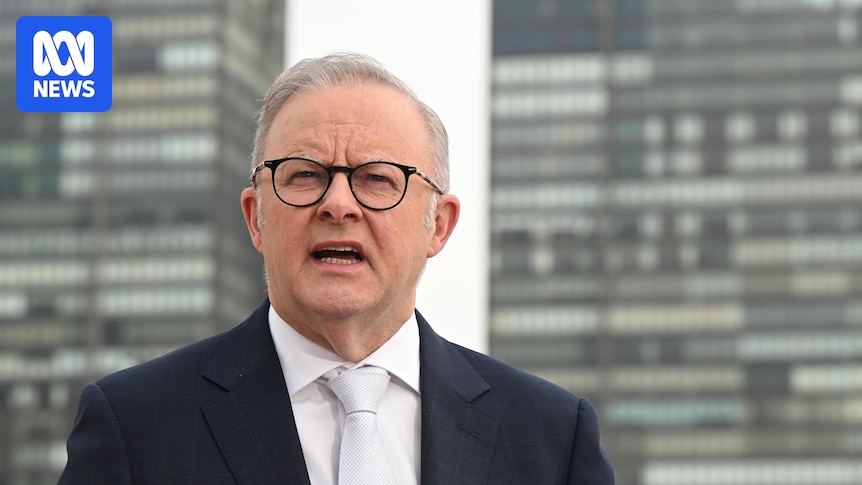
Prime Minister Anthony Albanese is set to make his first address at the United Nations General Debate, marking a significant milestone in his political career. This comes amidst a backdrop of complex international relations, as Australia navigates its stance on Palestine and climate change, while fostering ties with major global players such as the United States and China.
Arthur Sinodinos, a former US ambassador and Liberal frontbencher, has downplayed the potential impact of Australia’s recognition of Palestine on its relationship with the United States. Speaking to ABC Radio National Breakfast, Sinodinos emphasized the importance of maintaining a broad perspective on bilateral ties. “We can’t allow one issue to overshadow the rest of the relationship,” he stated, highlighting the need for strong leader-to-leader connections.
Albanese’s Diplomatic Engagements
Albanese’s UN debut is not just a ceremonial occasion; it represents Australia’s active participation in global diplomacy. While Foreign Minister Penny Wong has been the face of Australia at the UN since 2022, Albanese’s presence signals a shift in Australia’s diplomatic strategy. His meeting with US President Donald Trump, albeit brief, was a focal point of media attention.
Senators Bridget McKenzie and David Pocock humorously commented on the encounter, with McKenzie noting the significance of the Australia-US relationship despite personal opinions on Trump. Pocock, however, criticized Trump’s UN address, labeling it “dangerous” due to its dismissive tone towards the institution.
Global Security and Climate Change
Ukrainian President Volodymyr Zelenskyy delivered a stark warning at the UN, highlighting the growing threats posed by Russian aggression and the rapid development of drone technology. Zelenskyy stressed the importance of international support and the need for a robust security framework.
“We are now living through the most destructive arms race in human history,” he declared, underscoring the critical role of alliances and military capabilities.
Meanwhile, China’s President Xi Jinping made a historic pledge to reduce carbon emissions by 7 to 10 percent by 2035, positioning China as a leader in climate action. This announcement was met with cautious optimism by Prime Minister Albanese, who also outlined Australia’s ambitious climate targets at the UN Climate Summit.
Social Media Regulation and International Reactions
Australia’s proposed social media age limit for children under 16 has sparked international interest. Communications Minister Anika Wells shared insights on the initiative at a UN event, emphasizing the need for global cooperation in safeguarding children online. The emotional testimony of Emma Mason, who lost her daughter to social media bullying, resonated deeply with attendees, including European Commission President Ursula von der Leyen.
This initiative reflects Australia’s proactive stance on digital safety, with Wells indicating ongoing discussions with international counterparts. The potential for other nations to adopt similar measures highlights the global relevance of Australia’s policy.
Implications and Future Directions
As the UN General Assembly continues, the interplay of diplomatic, security, and environmental issues remains at the forefront. Albanese’s engagements underscore Australia’s commitment to addressing these challenges on the world stage.
Looking ahead, Albanese is scheduled for further discussions with President Trump in Washington on October 20. This meeting will likely delve deeper into bilateral issues, including regional security and trade.
In the broader context, Australia’s diplomatic maneuvers at the UN reflect its strategic priorities and its role as a key player in global affairs. The outcomes of these engagements will shape Australia’s international relations and policy directions in the coming years.






